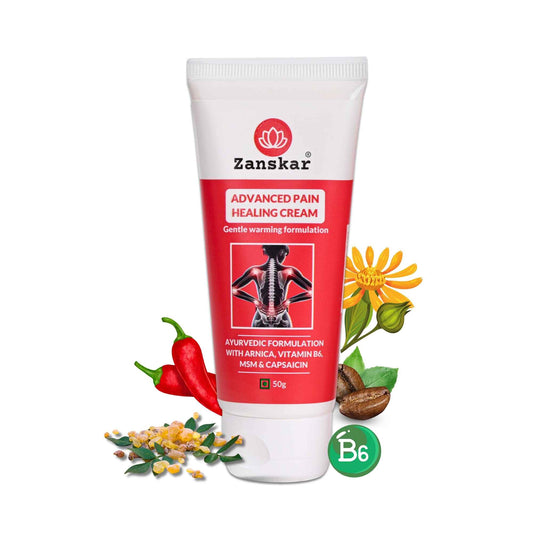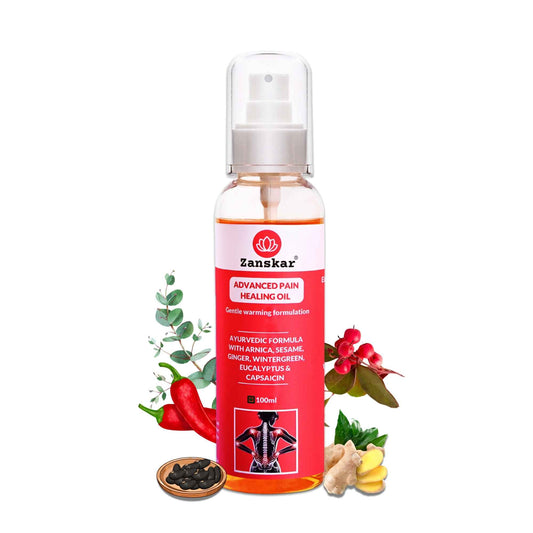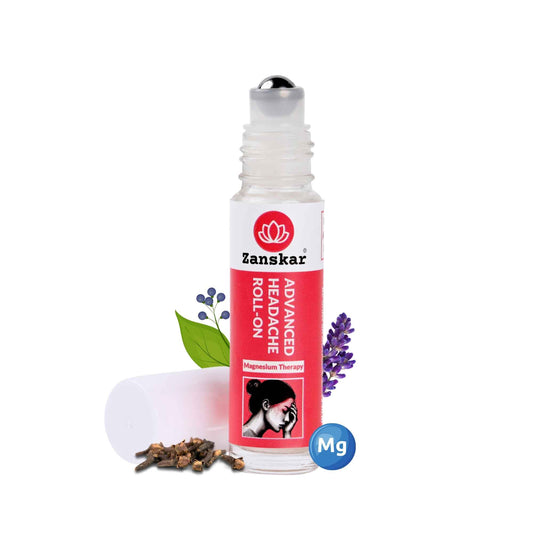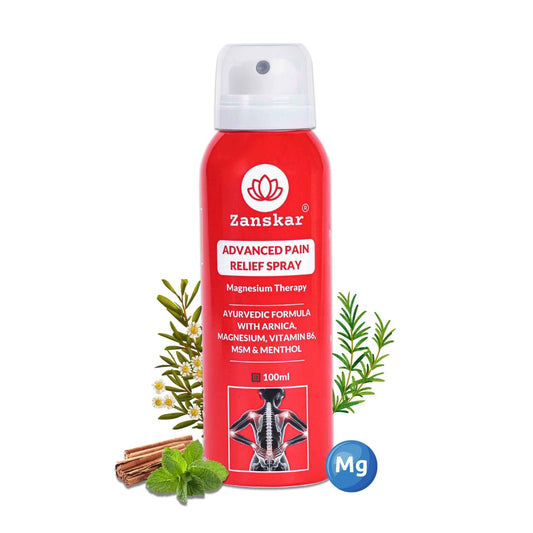
5 sneaky reasons behind that body ache you're feeling this winter and tips to prevent "Winter Pain"
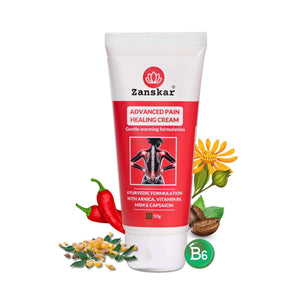
As the winter gloom sets in, there is now another issue you have to deal with. You wake up every morning with aches and pains in parts of your body. It’s inexplicable, because you might not have strained or hurt yourself, and yet there is persistent pain. From your joints to arms, throat to feet, everything aches, no matter how warm you keep these parts.
The reason behind this is that winter and its many vagaries sneak in to cause those aches. The chill in the weather finds ways to set in, especially through certain things you may not always pay attention to.
What causes body aches in winter?
Pinpointing the exact cause of your winter body aches can be tricky, but for most people it boils down to a few main factors:
1. Decreased activity levels
The most common cause of winter body aches is decreased activity levels.
Inactivity stiffens the nerves and muscles causing frequent body aches on winter mornings.
You naturally tend to be more sedentary over winter as inclement weather limits you from engaging in your usual physical activities. Over time, lack of movement can cause your muscles and joints to become stiff and painful.
2. More time sitting
For most people, spending more time indoors over winter means more sitting. Sitting for prolonged periods of time with poor posture can put a lot of pressure on the back muscles and spinal discs, which can cause a variety of neck, lower back and upper back issues.
3. Low Vitamin-D Level
With shorter days in winter and less sun exposure, our bodies miss out on the most vital ingredient for our bones - vitamin D.
Vitamin D is a necessary nutrient for strong bones, teeth, and joints. In winter, lower vitamin D levels raise the likelihood of bone discomfort, fractured bones, muscle spasms, and muscle weakening because the body cannot adequately absorb calcium and phosphorus.
4. Dehydration
The thirst you feel during the summer months doesn’t hit as hard during winters. The result is that you end up drinking much less water, and your body is unable to flush out all the wastes naturally.
Low temperature makes fluid in joints thicker causing pain.
Hydration is necessary because the cartilage between the joints has to be smooth and in order to maintain the right amount of friction, the body needs to be hydrated.
5. Pre-existing conditions are amplified
Cold weather can induce flare-ups for people with existing conditions like joint pain.
While there’s still some debate over why exactly this happens, some studies have suggested that it could be due to changes in barometric pressure (the pressure of the air) causing inflammation. Others theorise that changes in barometric pressure can make your tendons and muscles expand and contract, which can lead to pain in joints.
Overcoming winter body aches
Taking a proactive approach to your physical health can do wonders for keeping the winter body aches at bay. Relieve sore muscles and body aches with the following tips:
1. Stay active
One of the most effective ways to combat winter body aches is to stay active. While it may be tempting to spend winter snuggled up on the couch, frequent exercise is essential for maintaining good joint health and generally keeping your body fit, strong and healthy.
Warming up as soon as you wake up in the mornings and doing simple joint stretches can help.
Your muscles will be a little colder and tighter in winter, so always take the time to make sure you’re fully warmed up before engaging in any exercise. A good warm-up is key for getting the blood flowing, reducing the risk of injury and improving athletic performance.
2. Keep warm
Whether you’re playing winter sports, cheering on the sidelines or simply going for a walk outdoors, it’s important to always dress for the conditions. Most of the major sportswear brands offer high-performance winter apparel, which can help keep you warm and dry outdoors – perfect for walkers, runners and cyclists. Wear layers that can be peeled off as you warm up, and always wear appropriate footwear to prevent slips and falls.
3. Work on your posture
Improving your posture can improve spine health, reduce wear and tear on your body and reduce the risk of injury while exercising. When sitting, keep your feet flat on the floor, avoid crossing your knees and ankles, and keep your hips and knees at right angles. Keep your shoulders relaxed, avoid craning your neck down or forward, and try to take a 5-10 minute break for every hour you spend sitting.
4. Keep yourself well hydrated
Keeping yourself well hydrated is important. In winters, we tend to reduce our water consumption but it is necessary because the cartilage between the joints has to be smooth and in order to maintain the right amount of friction, the body needs to be hydrated.
5. Work with a Physiotherapist
Depending on your needs, a physiotherapist can help you reduce body aches through well-rounded exercise programme tailored to your health and wellbeing goals. A good physio can also offer valuable insight into how your body changes during the colder months and advise you on how you can safely stay fit and active all the way through winter.
It might be cold outside, but that doesn’t mean you have to suffer in pain. Zanskar Health is a completely online program that you can do from the warmth and comfort of your home
Learn More About Zanskar Health
If you have joint or muscle pain that makes it hard to move, Zanskar offers the most advanced full stack pain relief solutions for you.
Now available to purchase, Zanskar® Advanced Pain Healing Cream has a unique formulation of natural ingredients like Arnica, Vitamin B6, MSM and Capsaicin, which is trusted by over 20L+ pain sufferers globally. It provides lasting relief from muscle and joint discomfort that you can feel good about. Get your fix before stocks run out - buy now.
You can also gain access to therapeutic exercises and stretches for your condition by downloading the Zanskar Health physiotherapy mobile app. Additionally, you’ll have a personal care team to guide, support, and tailor our program to you, including behavioral and nutritional coaching.
Download our mobile app here 👉 download and track your exercise streak.
Medical Review: This article is written by Dr Nishtha Mittal (Senior Health Content Editor at Zanskar Health) and has been medically reviewed by Dr Rashi Goel (Senior Physiotherapist at Zanskar Health). This article and its contents are provided for educational and informational purposes only and do not constitute medical advice or professional services specific to you or your medical condition.




